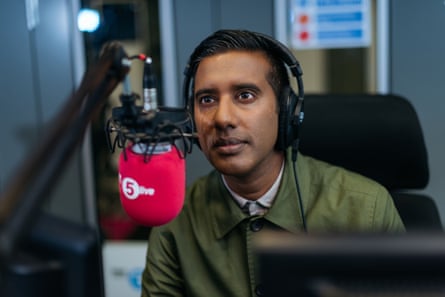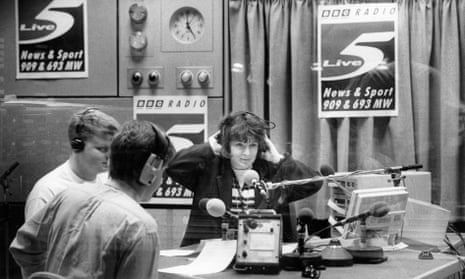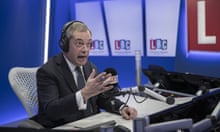On 4 February 1968, a disgruntled Nottingham resident picked up the phone to complain about his local council. He didn’t ring the council offices, though. Instead, he called the very first British radio phone-in programme, What Are They Up to Now?, on Radio Nottingham, one of the new BBC local radio stations. He may not have realised it, but his call launched a radio revolution.
Fifty years later, radio is still awash with phone-ins, even though today you can sound off on Twitter and Facebook or blog your grievances without risk of interruption. So why have they survived? Vanessa Feltz, the presenter of the award-winning BBC Radio London breakfast show, thinks that the answer lies in the power and immediacy of the voice. “I think there’s a tremendous desire to be heard, and hear other people’s voices.” Andrew Crisell, the author of Understanding Radio, compares radio favourably with both print and television. “As soon as it’s written, it is crystallised – dead, inert. The medium of radio offers more than mere text – there are also paralinguistic features, such as nuance and tone, but without as much noise as TV. The very fact that you can’t see people makes radio a very intimate and confessional medium.”
And confess they do, in abundance. Jane Garvey, who hosts Woman’s Hour’s phone-ins on BBC Radio 4, is astonished by what callers are happy to reveal on air. Last week, for example, in a series of phone-ins dealing with the menopause, run in conjunction with BBC Radio Sheffield, one caller breezily admitted that “I stained a few beds from Amsterdam to Istanbul”. Listeners disclose their psychosexual problems on Radio 1’s The Surgery; their need for advice trumps their embarrassment.
Crisell is right: there’s something therapeutic, it seems, about baring all when no one can see you. Feltz has been moved by callers speaking out for the first time about the sexual abuse they experienced as children, while Nicky Campbell on BBC Radio 5 Live’s breakfast phone-in, Your Call, cried when listeners told him about their desire for assisted dying. The inhibited Brit has increasingly become a collector’s item.
Phone-ins can be lifelines in emergencies, allowing dejected football fans to sound off about their team’s abject performance (invaluable for Arsenal supporters) and can become channels for the outpouring of grief and anger – such as the Radio City and Radio Merseyside phone-ins in 1989 after Hillsborough – or every single phone-in after the death of Princess Diana.
At times of profound national disagreement, such as with Brexit, they also allow a collective venting. According to Gill Farrington, the editor of 5 Live Breakfast, the network saw Brexit coming: “We’re not stuck in the metropolitan bubble. People were contacting us to give us their view, so the shock wasn’t so strong for us.” Campbell goes further, arguing that phone-ins like his were rare but essential spaces where listeners were confronted with opinions beyond their tribes.
But has the radio phone-in really democratised discourse or has it in fact degraded it? When prejudiced views are discharged on air, they are also being fanned and spread. What’s more, many phone-in hosts, especially on commercial radio, are professional polemicists and controversialists with distinct ideologies and a range of techniques for delegitimising callers whose opinions differ from their own. Prof Ian Hutchby, who studies applied linguistics at Leicester University, has looked at the ways these hosts often put callers on the defensive – by challenging their argument with a pithy “So?” or “What has that got to do with it?” or by summarising the caller’s claims in a way that only proves the host’s point. Even though listeners do argue back, the power in a phone-in isn’t distributed equally.
Indeed, some political phone-ins sound as if they exist solely to polarise debate and set up extreme positions; Hutchby calls this “confrontation as spectacle”. What makes it particularly concerning for some is the limited range of opinion among presenters. The commercial station LBC, for example, which claims to be “Leading Britain’s Conversation”, but can’t throw off its reputation as being “Loved by Bigoted Cabbies”, has in its peak time weekday slots rightwing hosts Nick Ferrari, Iain Dale, Nigel Farage and (until May last year) Katie Hopkins. The sole antidote is James O’Brien, Corbyn-doubter and self-confessedly “politically homeless” (although recently described by the Sun as a “smug, sanctimonious, condescending, politically correct, champagne-socialist public schoolboy remoaner”).

Ferrari, the winner of the journalist of the year award in last year’s British Journalism awards for his election interview with Diane Abbott among other things, seems to draw his agenda from the Daily Mail and also often quote from it. Criticised by the Broadcasting Standards Commission, Ofcom’s predecessor, in 2003 for reinforcing prejudice (he had encouraged listeners to phone in with stories about the treatment of asylum seekers compared with British citizens), he was cleared by Ofcom for describing the 2015 Paris attacks as “a Muslim problem”.
Ferrari tells me that “the great disadvantage of being a liberal is that you have to be all things to all people … on the one hand, on the other hand. News from a rightwing perspective can often be more entertaining – you can say: ‘This is an absolute disgrace and has to stop this afternoon at three!’” The EU referendum, he maintains, allowed people to say things that they felt they hadn’t been able to say before about how the world had changed and that they didn’t like it. Fine – but what if they attributed it to an incorrect cause? “That’s where another listener comes in to challenge them.”
Though usually civil with callers, especially first-timers, Ferrari – and O’Brien, too – can also adopt the abrasive stance pioneered by Brian Hayes at LBC in the 80s, probably the closest that Britain, with its broadcasting code, has come to a US “shock jock”. But today’s scariest US-based example of that genre, Alex Jones – conspiracy theorist, talkshow host and Donald Trump defender-in-chief, who rants about gay sex in coffins in a demonic voice while appealing to God – makes Ferrari sound like Karl Marx with a charm-school diploma.
Of course, the BBC can’t and won’t go there. To the many Trump fans who called after his UK visit was initially “postponed”, Campbell pointedly responded: “I say nothing.” BBC listeners, he says, don’t want their phone-ins Fox-ed up. Feltz, when confronted by an anti-abortion campaigner who stands outside a west London abortion clinic praying for souls, argues that her role is to “get him to explain his sense of moral rectitude and not to judge – let listeners decide for themselves”.

Yet for all the multiplicity of views, the range of phone-in hosts and callers across both the BBC and commercial radio remains noticeably non-diverse and, in former BBC director general Greg Dyke’s memorable words, “hideously white”: 5 Live’s Nihal Arthanayake and Dotun Adebayo are among the very few BME national phone-in presenters in the country. Nearly three years ago, the BBC Trust found that the network was skewed towards white listeners and also merited its moniker of Radio Bloke: 75% of callers to Campbell’s breakfast phone-in were men.
Since then, 5 Live has made an effort to recruit more women. Emma Barnett, the presenter of a new mid-morning show on the network, believes that when women hear a female host, they’re more likely to phone the station. And most female phone-in hosts, in the UK at least, differ in style from their male counterparts: combining briskness with empathy, they’re less likely to be haranguers. Even so, they seem to be held to different standards. Garvey, recalling her LBC days, says, “If I did a mildly stroppy confrontational interview with a politician I was regarded as aggressive in a way that my co-host never was.”
In its attempt to attract more female callers, 5 Live draws on the arsenal of social media, reading out tweets and emails, posting the day’s topics on Twitter and Facebook, and phoning up female tweeters (it’s notable that women are more inclined to tweet than call) to encourage them to speak on air. Today’s phone-ins are part of the digital landscape – it’s how they have reinvented themselves – and the ubiquity of the mobile phone has made calling them easier and somehow more modern.
Radio stations love phone-ins because they are cheap and turn news into entertainment: there’s no denying the sadistic pleasure in hearing a sloppy thinker being skewered by a sharp host. They also allow us to eavesdrop on people’s most intimate experiences and deepest opinions – we become, in Crisell’s words, “auditory voyeurs”. Ultimately, Barnett thinks them “terribly entertaining: we want them to say what they’ve been saying at their radio, but on the radio”. So, might even Gogglebox be descended from the phone-in?
In the 30s, Bertolt Brecht wrote that radio could be the “finest possible communication apparatus in public life … if it knew … how to let the listener speak as well as hear”. He would have thrilled, surely, to the sound of Barry from Bracknell.









Comments (…)
Sign in or create your Guardian account to join the discussion